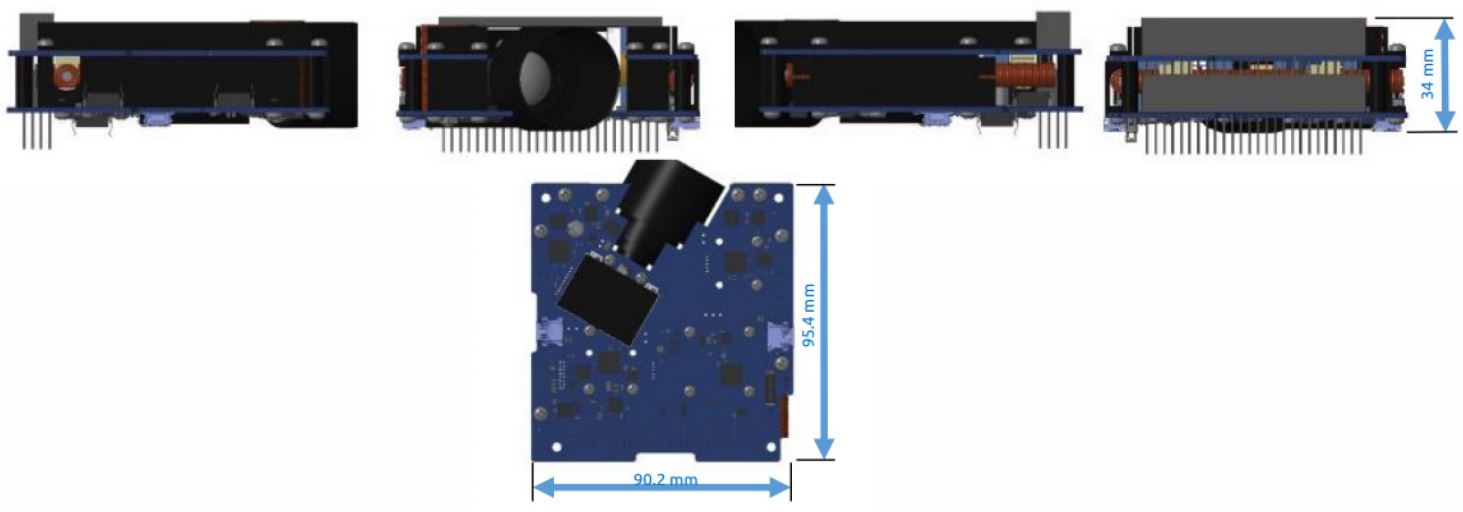The iADCS200 matches the ST200 star tracker with RW210 series of reaction wheels, as well as the MTQ200 series of magnetorquers. Combined with Berlin Space Technologies’ flight-proven control algorithms, it offers an entirely autonomous attitude control system, in the space of 2 standard CubeSat PCB’s. With the help of the RW210 series of reaction wheels, it is capable of precisely pointing and slewing 1 to 4U CubeSats or platforms with similar moments of inertia.
It features a host of operating modes, chief among which is the target tracking mode, which allows users to enter latitude and longitude of a point on Earth, after which the system will orient a pre-defined instrument-side towards that target, following it until it has passed the local horizon.
The iADCS200 is also stack-through, allowing users to place it anywhere in their satellite.

| Parameter | Value |
|---|---|
| Lead Time | 6 to 9 months |
| Mass | 470 g |
| Dimensions | 95 x 90 x 32 mm |
| Operating Temperature | -45C to 85C |
| Attitude Determination Accuracy | 30 arcseconds (3σ) |
| Nominal Torque | > 0.087 mN.m |
| Nominal Magnetic Moment | 0.2 (X, Y), 0.1 (Z) |
| Pointing Accuracy | < 1 deg |
| Slew Rate | > 1.5 deg/sec |
| Radiation Tolerance | > 45 krad |
| Maximum Power Consumption | 4500 mW |
| Idle Power Consumption | 1150 mW |
| Supply Voltage | 5 V (typ.) |



